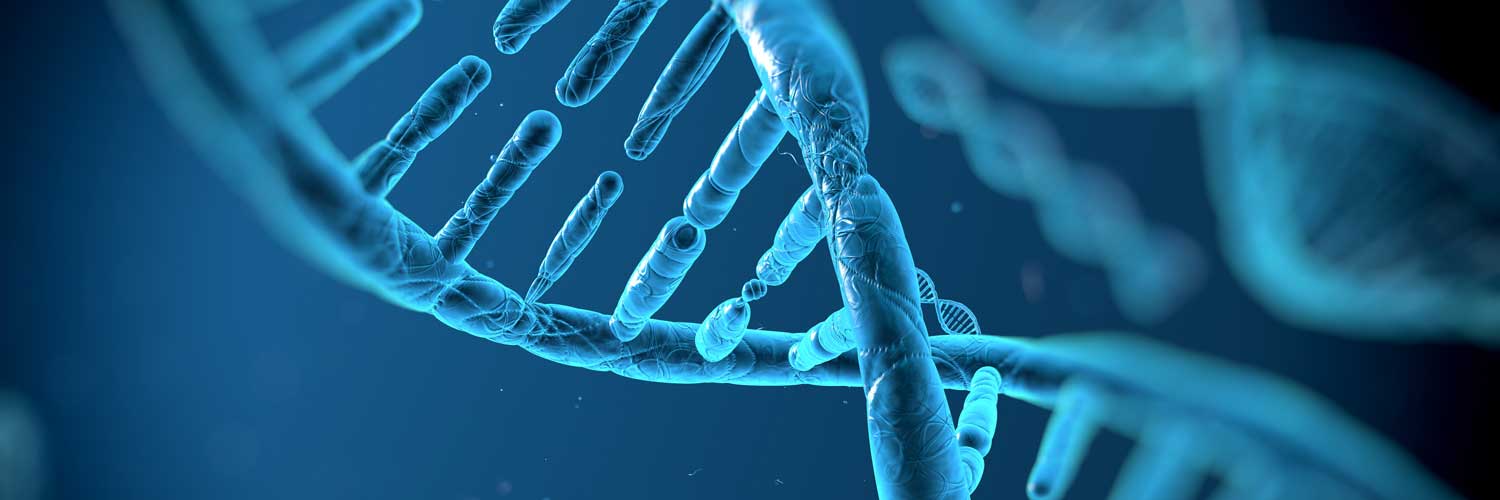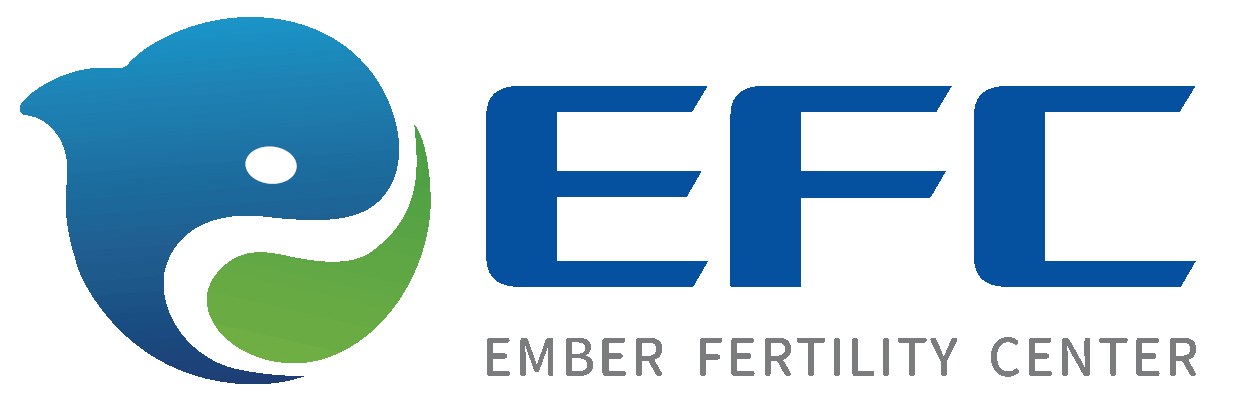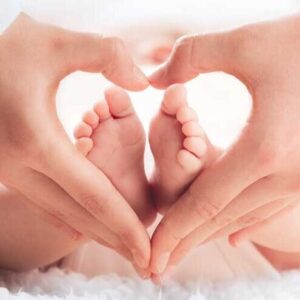Key facts about oncofertility
- According to the National Cancer Institute, more than 1.86 million Americans are diagnosed with cancer each year.
- A cancer diagnosis can come with a number of difficulties, and one of them is the potential for fertility issues during and after treatment.
- Treatments for certain cancers can alter the function of the ovaries or testes, or damage the DNA of the sperm and eggs, causing infertility and the inability to have children in the future.
- Oncofertility is the term used to describe the concept of preserving fertility in cancer patients prior to their treatment, usually by freezing eggs, sperm and embryos.
- This process allows cancer patients to continue their cancer treatments without the risk of losing the chance to have children in the future.
- The best time to preserve fertility is before cancer treatment starts. Patients facing cancer treatment should speak to a fertility specialist early to help them make informed decisions for their future.

At Ember, everyone is a VIP – very important patient
And we have a thing for the small things: Each Ember patient gets a dedicated fertility coordinator, a patient’s personal care guide through every clinic detail, from the very first phone call to meeting your little miracle. Schedule your appointment today using our online self-scheduling tool.
What is oncofertility?
Oncofertility is a term used to describe the combination of oncology, reproductive medicine and genetics in order to preserve fertility in cancer patients. Oncofertility combines current cancer treatments with fertility preservation techniques, such as egg freezing used with other assisted reproductive technologies.
The goal of oncofertility is to provide cancer patients with the ability to still have children after their cancer treatment. This is especially important because the effects of cancer treatment, such as radiation, surgery or chemotherapy, can leave patients unable to conceive naturally.
Fertility specialists can freeze patients’ eggs retrieved through in vitro fertilization (IVF) steps or sperm prior to cancer treatment. The frozen eggs and sperm can then be used for fertilization in IVF, or the sperm can be used in intrauterine insemination (IUI), after the cancer treatment is concluded. Retrieved eggs can also be fertilized with sperm in IVF to form an embryo, which can also be frozen for a future pregnancy.
Oncofertility research is continuing to develop and is an incredibly important part of cancer care. It is important for patients facing cancer treatment to discuss fertility preservation options with their physicians. Oncologists do not always bring up this option, so patients should bring it up themselves.
Timing is another consideration that must be coordinated by our fertility specialist, Dr. William Freije, and the patient’s oncologist. A patient may need to start cancer treatment quickly, which makes taking oncofertility steps as soon as possible necessary.
Oncofertility provides cancer patients with options to preserve fertility, allowing them to achieve their dream of having children after they have completed their cancer treatment.
How does cancer treatment affect fertility?
Cancer and its treatment, such as chemotherapy, radiation, surgery and hormone therapy, can potentially have an impact on a person’s fertility. Depending on the type of cancer and the treatment, it could lead to damage to a person’s reproductive organs, hormones or other components necessary for fertility. Cancer treatments such as radiation therapy and chemotherapy can affect reproductive systems, which can lead to hormonal imbalances, ovulation irregularities, changes in menstrual cycles and other conditions that can impede fertility.
Chemotherapy has the potential to damage eggs or sperm cells, which could lead to premature ovarian failure or infertility in both men and women. Treatments can reduce the number and quality of sperm cells, directly harming fertility. Radiation therapy may also affect fertility depending on where it is directed. If it is to the pelvic region or directed at gonads (testicles), then it has the potential to cause long-term damage including infertility.
Hormonal treatments used for cancer such as tamoxifen are known to increase risk of infertility due to their effects on hormones involved in reproduction. In addition, some surgical procedures for removal of cancerous tissue may remove reproductive organs such as ovaries, fallopian tubes, the uterus or testicles resulting in long-term infertility.

We have a thing for the small things
- We get to know every patient and their individual stories.
- Ember is proudly a small clinic offering a boutique medical experience not found in larger clinics.
- We enthusiastically celebrate the successes of all our diverse clients.
Fertility treatment preservation options
Fertility treatments that can be preservation options for cancer patients depend on many factors such as the type of cancer and its stage, the treatments that are necessary and their intensity, and the patient’s age and preference.
In some cases, fertility preservation may be possible even if a cancer patient has already started treatment. This is known as “rescue ovum” cryopreservation, and it can be done quickly and safely to ensure the optimal preservation of a woman’s eggs.
Regardless of the type of fertility preservation that’s chosen, it’s important to ensure that it’s done in accordance with established medical protocols to ensure the highest quality of care and the greatest chance of success. Additionally, patients should be aware that there may be financial and emotional costs associated with fertility preservation.
Egg freezing (oocyte banking)
Egg freezing, or oocyte cryopreservation, is a safe and effective way to preserve female fertility. A woman must undergo an egg retrieval procedure, using ovarian stimulation with hormones. The eggs are retrieved via a minimally-invasive procedure and frozen using vitrification. They can be used with IVF after cancer treatments to achieve pregnancy.
Sperm banking (sperm freezing)
Sperm banking is one of the most commonly used forms of fertility preservation for male cancer patients. This method involves collecting semen from the patient and freezing it for use at a later date either with IUI or IVF. With modern freezing techniques, sperm can be stored indefinitely and used in the future by couples wishing to become parents after cancer treatments.
Embryo freezing
The process of embryo banking involves creating embryos through IVF, which involves fertilizing eggs with sperm in a laboratory setting. The resulting embryos are then cryopreserved, or frozen and stored, until the patient is ready to use them. In the case of couples, embryos can be created using both individual’s eggs and sperm, or through donor eggs and donor sperm.
Once the embryo has been frozen, it can remain frozen for several years with no deterioration to the quality. This gives cancer patients the flexibility to plan when they want to begin their family, while also allowing them to pursue their cancer treatment without worrying about future fertility.
Ovarian tissue cryopreservation
Ovarian tissue cryopreservation is the only oncofertility treatment effective for prepubescent girls and for women who must begin radiation or chemo treatment quickly before the time it takes for egg retrieval and freezing. It involves removing by surgery an ovary and freezing the tissue containing a follicle. That tissue is transplanted back into the woman for a chance at pregnancy.
Once considered an experimental treatment, it is now recognized by the American Society for Reproductive Medicine as a standard clinical procedure.
Risks and side effects of oncofertility treatment
When considering fertility preservation for cancer patients, it is important to understand the potential risks and side effects of the treatment itself.
Potential side effects of egg or embryo freezing include abdominal discomfort, cramping and ovarian stimulation syndrome, which can develop in some women. Long-term risks have yet to be determined, as this type of fertility preservation is relatively new.
Benefits to preserving fertility before cancer treatment
By taking advantage of fertility preservation options such as egg freezing, cancer patients can reduce the risk of infertility associated with cancer treatments. Oncofertility can also provide an emotional boost, allowing cancer patients to focus on their health and well-being during their cancer journey.
By preserving their fertility options, patients feel empowered that they have the ability to build a family in the future if they choose.
Next steps: speak to our fertility doctor
It is important for cancer patients to fully understand the risks and side effects of oncofertility before making a decision about whether to pursue fertility preservation. Patients should consult with all their doctors before making any decisions about fertility preservation, as each patient’s situation is unique.
Our fertility doctor is able to provide more information and suggest treatments that are most appropriate for the individual patient.
At Ember, we have a proven track record of helping both male and female oncology patients freeze their sperm and eggs, making it possible that their fertility is preserved despite the challenges of cancer treatment. We are also committed to assisting nononcology patients who have the specific gene associated with breast cancer. When referred by their oncologist, we offer the option to freeze eggs before any potential risks arise, providing peace of mind and proactive care.
In collaboration with cancer organizations like Live Strong, we strive to better serve oncology patients and provide them with comprehensive care. As part of our commitment to accessibility, we also offer our lowest-ever price of $5,800 for oncology patients seeking egg freezing.




